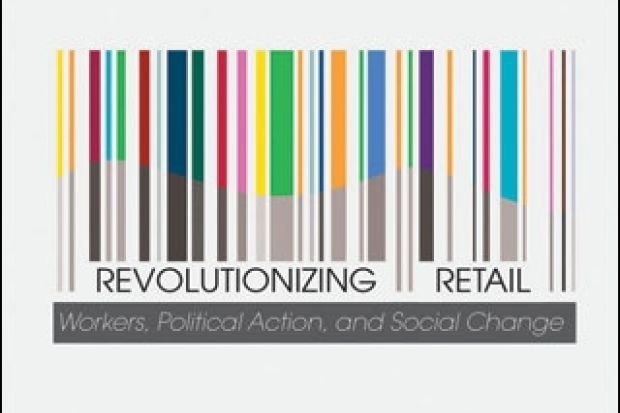It is hard not to like Kendra Coulter’s book, which focuses on what is needed to bring about changes that will alter retail workers’ conditions for the better: a challenge to neoliberal hegemony and the control of global retailers over world trade; and a retail revolution that would be the antithesis of the one wrought by Walmart and its expanding reach, influence and power.
Both means and ends are explored as Coulter asks: “What would it look and feel like to transform retail to improve workers’ lives? What changes are needed and how can they be secured?” To answer these questions, she deploys an inductive approach that draws on anthropological and ethnographic traditions, along with a series of data collection strategies that illuminate the realities of retail action. This comprehensive approach to data capture is a defining strength of understanding retail work at the “coalface”.
Coulter begins her exploration by seeking to understand the nature of the present-day retail sector and retail workers, a landscape in which the strength and control of transnational retail corporations is contrasted with the low wages, feminisation and precariousness of retail work itself. Workers’ voices are at the heart of her analysis, detailing the lived experiences of work and the potential for transformation.
Retail work, as Coulter shows, is now a significant feature of global economies, in terms of the paid workforce and of the influence of retail work on economic conditions and the choices and demands of transnational retail corporations. It is clear that retail work matters: for employees, for employers, for customers and communities. From the perspective of “good jobs” and a secure future, the reasons for improving retail work are strong and many.
Next, Coulter considers unionisation, one of the key strategies at retail workers’ disposal as they seek to initiate and embed change. In detailing a number of union-organising victories and the factors that contributed to their success, she focuses on the practical realities of organising and the human process that elevates workers’ understandings of unionisation as a form of political action. Perhaps equally importantly, she looks at some failed organising projects, and identifies challenges and barriers to change. One of her central findings is that employers’ union-avoidance strategies are a core barrier, a point tellingly illustrated by the activities and strategies of Walmart. The role unions themselves play in facilitating or inhibiting change is also considered. In analysing both organising successes and failures, she draws on workers’ first-hand experiences and the personal and emotional perspectives that cause them to move from inaction to collective action. This dual perspective enables us to understand how, as Coulter says, “workplaces can become sites for learning, questioning and contesting the status quo for social change”.
Finally, Coulter considers the broader retail terrain, and highlights diverse strategies used to promote change, including the avenue of public policy. Here, political action is broadly conceptualised, with “political” seen as “an expansive and holistic integration of various levels, facets and types of political, economic and cultural relations and processes”, including worker agency.
Essential reading for all employment relations scholars, Revolutionizing Retail encourages us to think deeply and sympathetically about retail workers’ experiences and their efforts to bring about positive change in complex socioeconomic, political and cultural conditions. Coulter should be commended for this valuable contribution to what is still, despite the prominence of retail in global economies, an understudied sector. In the process, she offers a valuable reminder of the importance of workers’ struggles in organising for social change.
Revolutionizing Retail: Workers, Political Action, and Social Change
By Kendra Coulter
Palgrave Macmillan, 212pp, £62.50
ISBN 9781137364678
Published 20 February 2014
Register to continue
Why register?
- Registration is free and only takes a moment
- Once registered, you can read 3 articles a month
- Sign up for our newsletter
Subscribe
Or subscribe for unlimited access to:
- Unlimited access to news, views, insights & reviews
- Digital editions
- Digital access to THE’s university and college rankings analysis
Already registered or a current subscriber?





